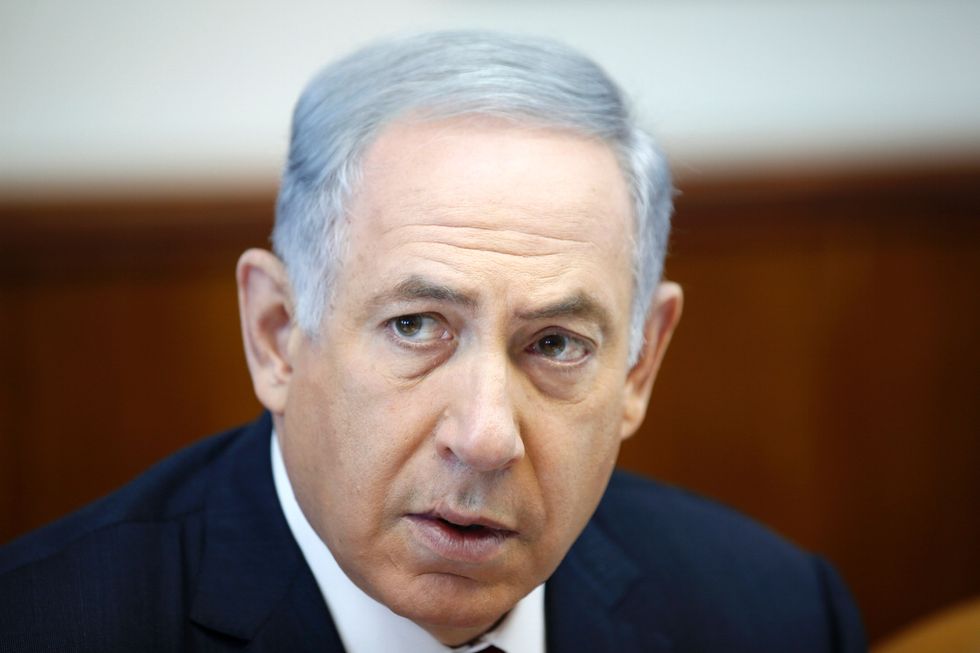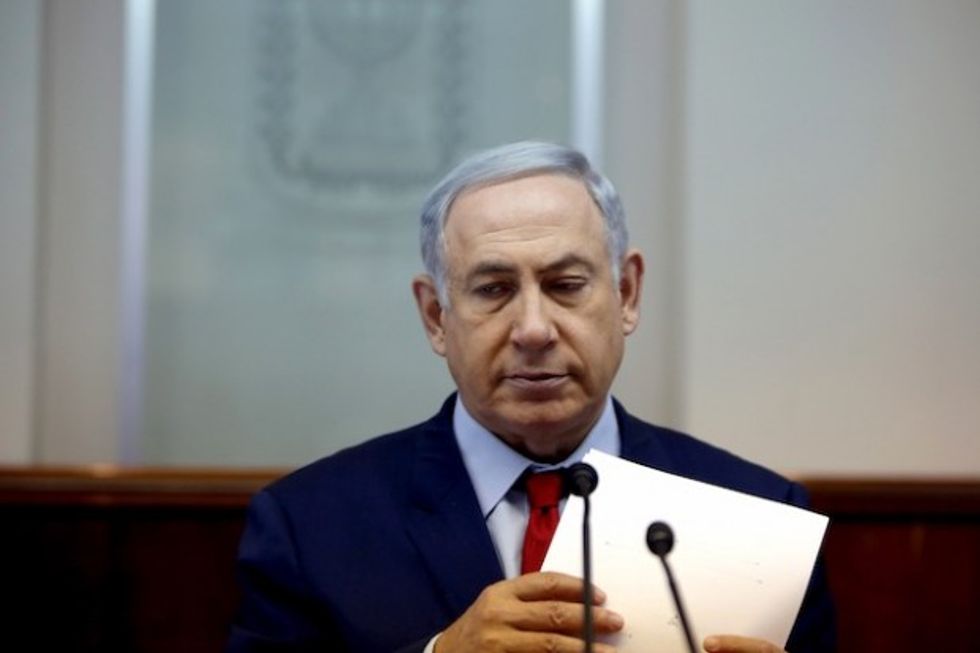
Israeli Prime Minister Benjamin Netanyahu chairs the weekly cabinet meeting at his office in Jerusalem on February 28, 2016. (Ronen Zvulun/AFP/Getty Images)

ADDIS ABABA, Ethiopia (AP) -- Israeli Prime Minister Benjamin Netanyahu on Thursday denied reports of an attempt on his life in Kenya during his heavily guarded African tour this week, saying he knew "nothing" of it.
Netanyahu said he was learning about the reports of an assassination attempt for the first time during a press conference with Ethiopian Prime Minister Hailemariam Desalegn in Addis Ababa.
"The answer is we know nothing about it because there is nothing in it," Netanyahu said.

He made the remarks in response to a reporter's question following an anonymously sourced report in the Kuwaiti newspaper al-Jarida.
Kenyan officials also denied there was an effort to kill Netanyahu.
"An attempted assassination can't be secret. It has to be something visible, and to my knowledge there was absolutely nothing of the sort," Kenya's Interior Ministry spokesman Mwenda Njoka told The Associated Press.
"I'm not aware, and there was no such thing at all. Those are lies," Inspector General of Police Joseph Boinnet said.
Israel's Foreign Ministry spokesman Emmanuel Nahshon said a report that the motorcade changed its route because of an explosives threat was "simply not true."
The Israeli prime minister is protected by heavy security in Israel and abroad, given high threats against Israeli targets around the world. Israeli Prime Minister Yitzhak Rabin was assassinated by a Jewish extremist in Tel Aviv in 1995.
Netanyahu's four-nation Africa visit is the first to sub-Saharan Africa by a sitting Israeli prime minister in nearly three decades. He has visited Uganda, Kenya and Rwanda while pursuing closer security and other ties with African nations, which cut or limited their relationships with Israel in the 1970s under pressure from Arab countries. African states were also opposed to Israel's close ties to South Africa's apartheid government.
Israel also wants African states to support it at the United Nations, where the Palestinians were recognized as a non-member observer state in 2012.
Netanyahu and Desalegn said Thursday they would renew cooperation in the fight against extremism, a theme that Netanyahu has repeated often during his African tour, and they signed agreements to increase ties in technology, agriculture and more.
Netanyahu also pledged to allow Ethiopian Jews remaining in Ethiopia to move to Israel.
"We have a commitment and we are keeping it on a humanitarian basis and on the basis of family reunifications. It will take place in the current budget," Netanyahu said.
Desalegn invited Ethiopian Jews living in Israel to come to Ethiopia and invest. Ethiopian Jews have complained of discrimination in Israeli society, and hundreds recently demonstrated against what they called Israeli police brutality.
Netanyahu also asked for the Ethiopian prime minister's help in pressing for Hamas to release an Ethiopian-Israeli citizen being held in Gaza.
—